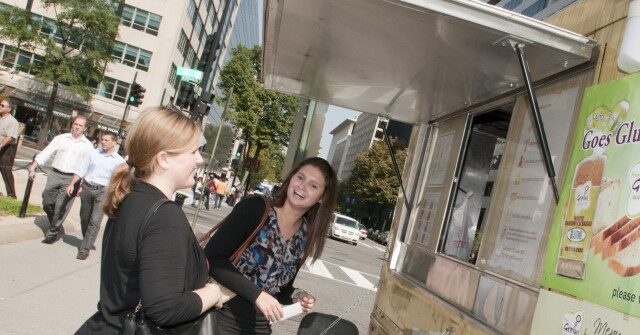Amid rising inflation, employees in Washington, DC, are significantly increasing their spending on work lunches, with a recent study revealing that they are spending an average of $350 per month on lunch-related expenses. This expenditure encompasses both meals from restaurants and the grocery costs associated with preparing their own lunches. The ezCater’s 2024 Lunch Report highlights the impact of inflation on dining habits in the capital, revealing that a large majority—79%—of Washingtonians have adjusted their lunch habits due to economic pressures. Notably, a substantial percentage have resorted to more affordable options or reduced the frequency of their dining out.
The economic landscape continues to present challenges for many Americans, who are grappling with rising costs for essential goods and services such as food, rent, and utilities. Data from the Federal Reserve Bank of St. Louis indicates alarming price increases since the Biden-Harris administration assumed office. Specific statistics show that grocery prices are up by 22.6%, rent has soared by 23.2%, and electricity costs have risen by 28.3%. These figures reflect the broader struggles that consumers face as they attempt to manage their budgets amid ongoing inflationary pressure.
As the political climate heats up ahead of the upcoming November presidential election, Vice President Kamala Harris is actively campaigning alongside her running mate, Governor Tim Walz of Minnesota. Their opponents include former President Donald Trump and his running mate, Senator JD Vance of Ohio. The electoral battle is expected to be heated, with economic issues, particularly rising costs stemming from inflation, likely playing a central role in voter concerns and campaign messaging.
Public sentiments mirrored those of Washington, DC, in other major cities, such as New York, where residents shared their experiences and adjustments in dining out due to inflation. Anecdotal testimonies from New Yorkers revealed a shift in habits, with many opting to eat out less frequently or seeking lower-cost meal options. Some individuals described the rising prices of meals, with one man commenting on the high cost of dining out with children, highlighting the broader impact of inflation on families making budget-conscious choices.
Despite prevalent narratives surrounding inflation during the early months of the Biden administration, some claims regarding inflation levels at the time have been challenged. In statements made in April, President Biden claimed inflation was “skyrocketing” when he took office. However, fact-checks pointed out inaccuracies in this assertion, clarifying that inflation was relatively low, with the consumer price index reflecting only a 1.4% increase compared to the previous year during Biden’s inauguration in January 2021.
In summary, the financial strain on households and individuals due to inflation is evident in changing spending habits, particularly concerning lunch expenditures in Washington, DC, and other urban areas. The increase in lunch costs reflects a broader pattern of economic challenges faced by Americans, underscoring the pressing nature of inflation as a key issue leading up to the November elections. As candidates campaign, the struggles related to inflation, rising living costs, and financial security will likely continue to shape voter sentiment and influence political discourse.

